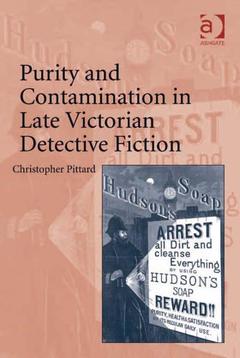Description
Purity and Contamination in Late Victorian Detective Fiction
Author: Pittard Christopher
Language: English
Keywords
hilda; wade; strand; magazine; criminal; anthropology; social; movement; ormiston; chant; Detective Fiction; Young Men; Victorian Detective Fiction; Holmes Stories; Social Purity Movement; Blue Carbuncle; Hilda Wade; Hansom Cab; Whitechapel Murders; Strand Magazine; Social Purity; Contagious Diseases Acts; Paget’s Illustrations; Bertillon Method; Criminal Anthropology; Twisted Lip; Boscombe Valley Mystery; Mri Brain Scan; African Millionaire; John Marchmont’s Legacy; Lombrosian Theory; Crime Narratives; Coroner's Court; Red Headed League; Sensation Fiction
183.14 €
In Print (Delivery period: 14 days).
Add to cartPublication date: 07-2011
Support: Print on demand
Publication date: 11-2016
· 15.6x23.4 cm · Paperback
Description
/li>Contents
/li>Biography
/li>




